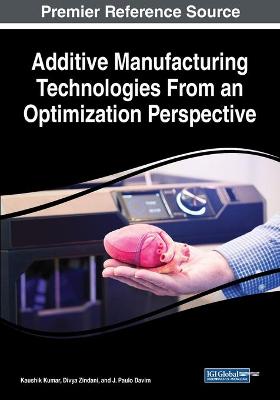Advances in Logistics, Operations, and Management Science
1 total work
Additive Manufacturing Technologies From an Optimization Perspective
Published 19 April 2019
In this technology-driven era, conventional manufacturing is increasingly at risk of reaching its limit, and a more design-driven manufacturing process, additive manufacturing, might just hold the key to innovation. Offering a higher degree of design freedom, the optimization and integration of functional features, and the manufacturing of small batch sizes, additive manufacturing is changing industry as we know it.
Additive Manufacturing Technologies From an Optimization Perspective is a critical reference source that provides a unified platform for the dissemination of basic and applied knowledge about additive manufacturing. It carefully examines how additive manufacturing is increasingly being used in series production, giving those in the most varied sectors of industry the opportunity to create a distinctive profile for themselves based on new customer benefits, cost-saving potential, and the ability to meet sustainability goals. Highlighting topics such as bio-printing, tensile strength, and cell printing, this book is ideally designed for academicians, students, engineers, scientists, software developers, architects, entrepreneurs, and medical professionals interested in advancements in next-generation manufacturing.
Additive Manufacturing Technologies From an Optimization Perspective is a critical reference source that provides a unified platform for the dissemination of basic and applied knowledge about additive manufacturing. It carefully examines how additive manufacturing is increasingly being used in series production, giving those in the most varied sectors of industry the opportunity to create a distinctive profile for themselves based on new customer benefits, cost-saving potential, and the ability to meet sustainability goals. Highlighting topics such as bio-printing, tensile strength, and cell printing, this book is ideally designed for academicians, students, engineers, scientists, software developers, architects, entrepreneurs, and medical professionals interested in advancements in next-generation manufacturing.
